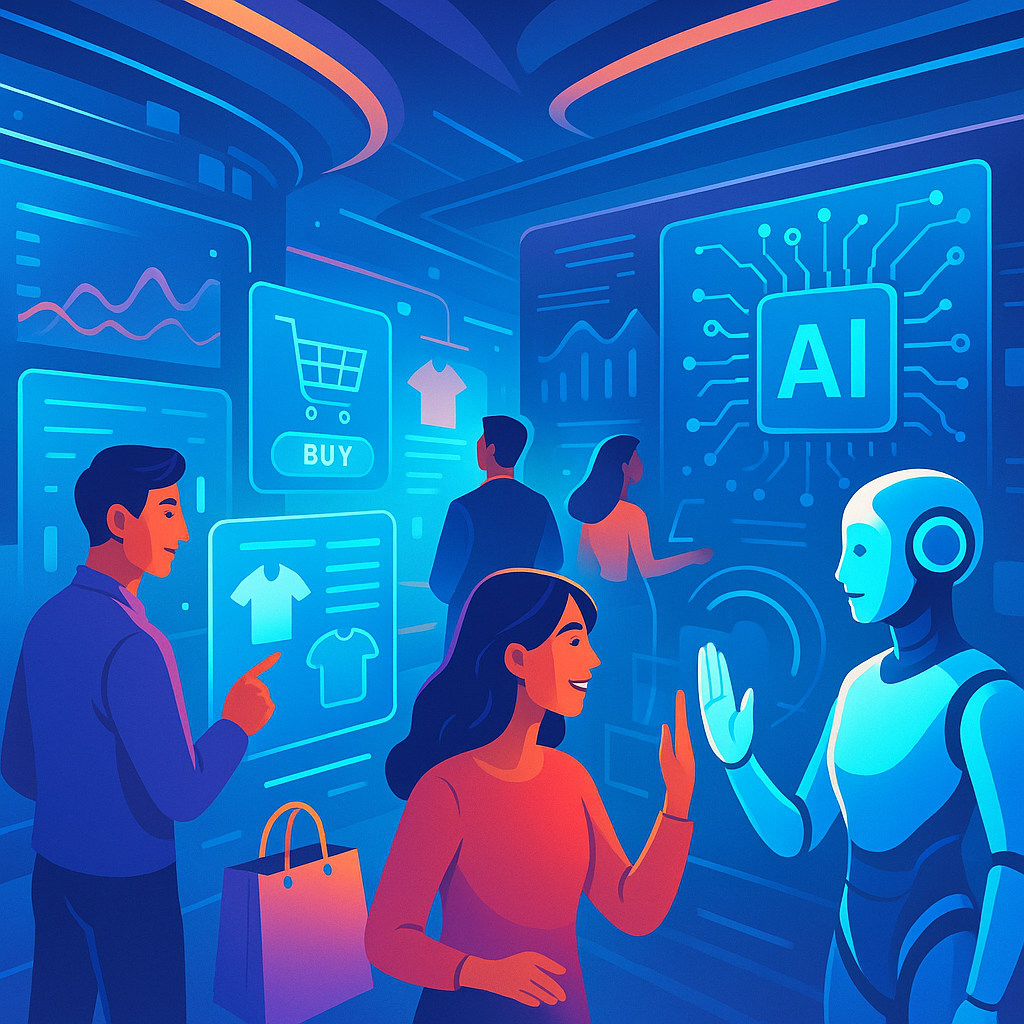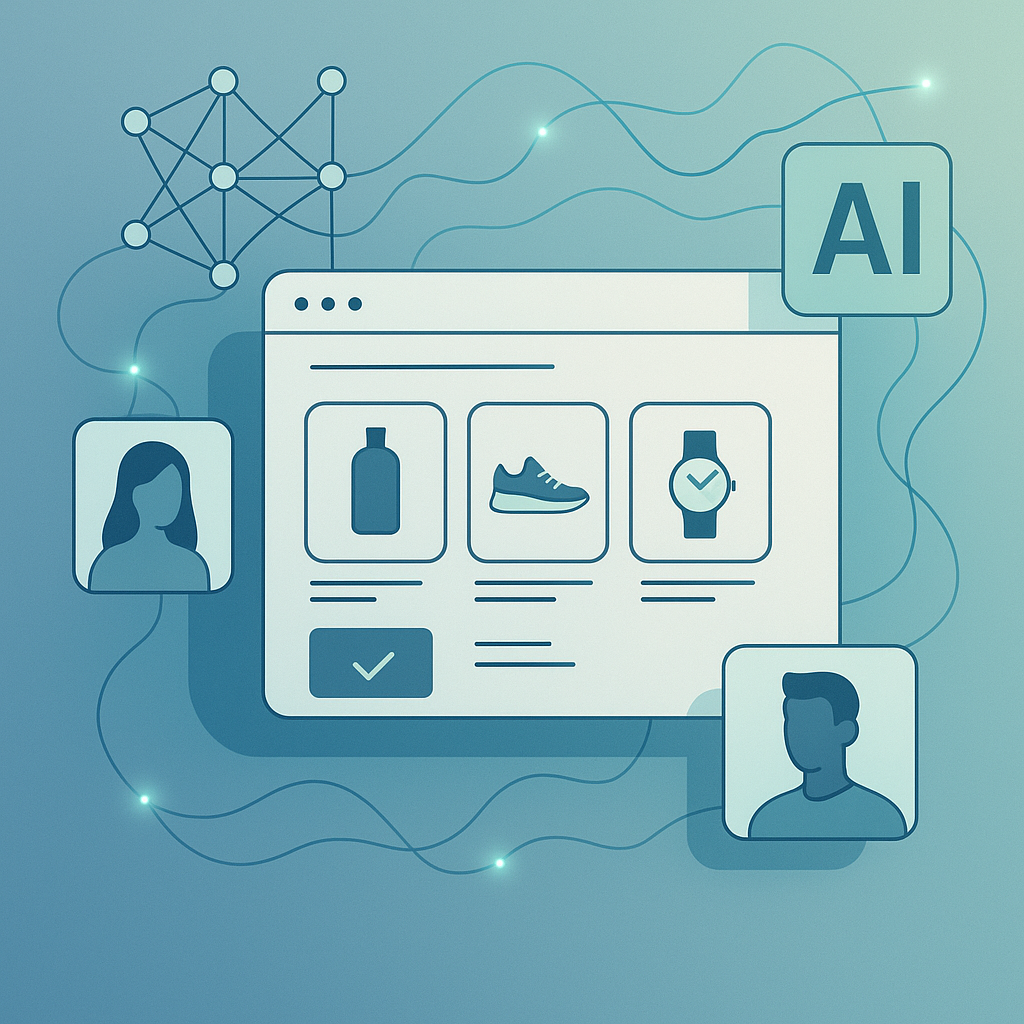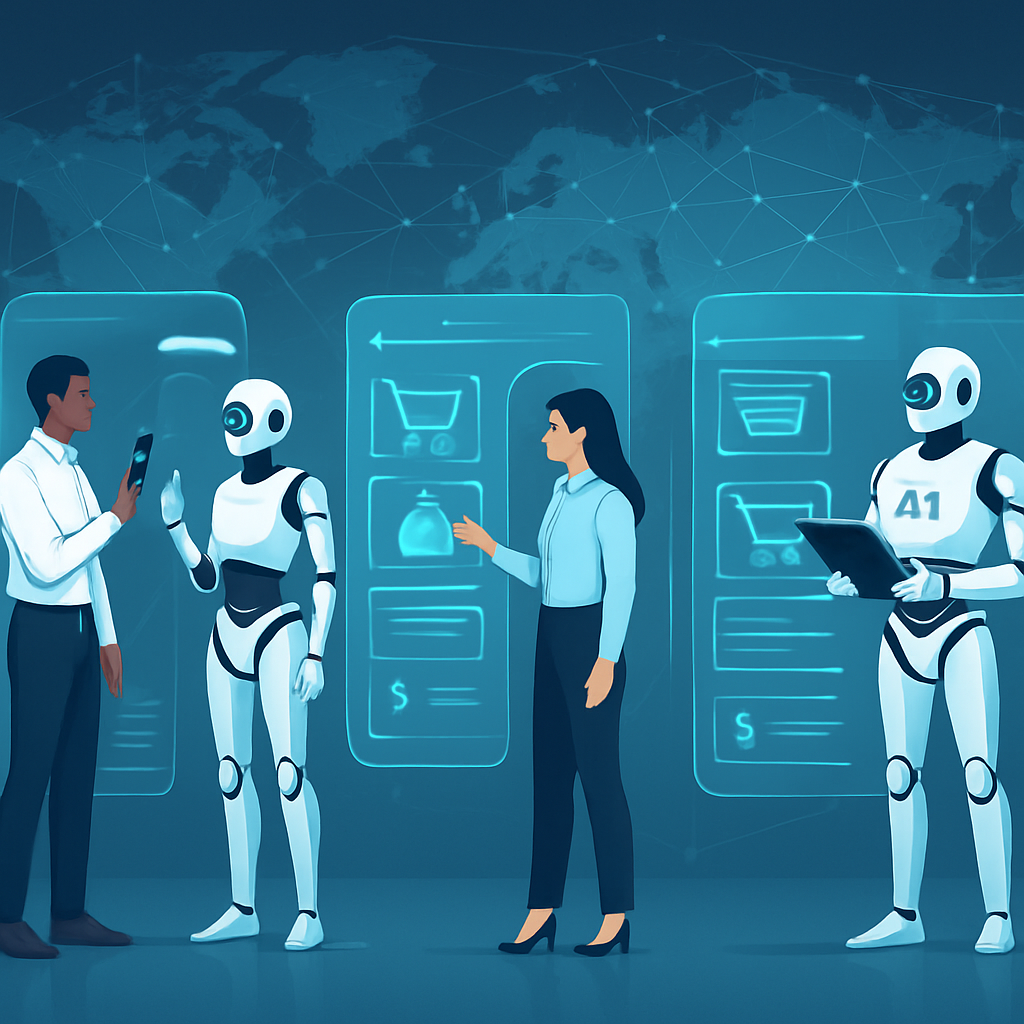
How AI Innovations Are Changing Digital Marketing & E-Commerce in 2024
Introduction: The AI Revolution in Digital Marketing and E-Commerce
The convergence of artificial intelligence with digital marketing and e-commerce in 2024 is rewriting the rules of engagement. What was once an experimental technology has become a fundamental pillar enabling companies to offer hyper-personalized experiences, optimize operations, and anticipate consumer behavior with striking accuracy. For e-commerce companies, embracing ai based digital marketing is not just an advantage; it has become essential for staying competitive in a fast-moving marketplace.
AI-Powered Personalization: Beyond Basic Recommendations
Traditional personalization engines, which suggested products based on past purchases or browsing history, are rapidly evolving. AI-driven systems in 2024 now employ deep learning algorithms that integrate contextual data such as time of day, social trends, weather patterns, and even emotional cues derived from sentiment analysis.
Example: A leading footwear retailer uses AI models to adjust marketing messages and recommend products based on localized weather forecasts and social sentiment, offering rain boots on dreary days while suggesting lightweight sneakers during sunny periods. This dynamic approach results in a 35% uplift in conversion rates compared to static recommendations.
Advanced Customer Segmentation Through AI Clustering Techniques
AI algorithms now analyze vast arrays of customer data to generate micro-segments that are far more granular than traditional demographic profiles. These micro-segments allow digital marketing campaigns to tailor messaging with incredible specificity.
Example: An e-commerce fashion brand leverages AI clustering to identify a segment of users who prefer sustainable materials but also respond to flash sale urgency. Marketing campaigns targeted precisely at this segment show improved engagement and loyalty rates, fueling a revenue increase of over 20% in a quarter.
Conversational Commerce: Chatbots and Virtual Assistants Redefined
Chatbots in 2024 transcend scripted responses. Powered by natural language understanding and real-time learning, these AI agents provide personalized shopping advice, resolve complex queries, and even upsell with contextual awareness.
Example: An electronics e-commerce platform integrates AI virtual assistants that recognize returning users’ preferences and browsing patterns, proactively suggesting compatible accessories and warranties during interactions. This leads to a 25% increase in average order value.
Predictive Analytics and Demand Forecasting
AI's impact extends to supply chain and inventory management, where predictive analytics optimize stock levels and minimize overstock or stockouts, ensuring that marketing efforts align perfectly with product availability.
Example: A global beauty products e-commerce firm uses AI to forecast demand surges before product launches based on social media trends and influencer engagement metrics. This proactivity allows timely targeted marketing campaigns, maximizing sales impact at launch.
AI-Enhanced Content Generation and Media Buying
Content creation powered by generative AI tools enables digital marketing teams to produce tailored advertisements, social media posts, and emails rapidly, adapting tone and format per audience segment. Simultaneously, AI optimizes media buying by autonomously adjusting bids and placements in real-time across digital channels.
Example: A sports apparel e-commerce company employs AI to generate video ads tailored for different social media platforms, adjusting length and focus dynamically. AI-driven ad buying algorithms continuously tune spending to maximize ROI, resulting in a 40% reduction in cost-per-acquisition.
Visual Search and AI-Driven Product Discovery
AI is enabling customers to find products effortlessly through visual inputs. Advanced image recognition and machine learning help match user-uploaded photos with e-commerce inventory, streamlining the discovery process.
Example: A furniture e-commerce site introduces AI-based visual search so customers snap pictures of designs they like and instantly view similar available items. This intuitive experience reduces browsing time and increases conversion ratios.
Ethical AI and Consumer Trust in 2024
As AI adoption deepens, ethical considerations like transparency, data privacy, and bias mitigation become central. E-commerce companies investing in responsible AI frameworks see enhanced consumer trust and brand loyalty.
Example: A niche cosmetics e-commerce platform openly communicates its AI personalization approach and data use policy, offering users control over their data. This transparency differentiates the brand, attracting privacy-conscious consumers and positively influencing sales.
Challenges and Considerations for Adoption
- Data Quality and Integration: AI effectiveness hinges on clean, comprehensive data across multiple touchpoints.
- Technology Complexity: Integration of AI tools requires skilled staff and sometimes reengineering of legacy systems.
- Customer Perception: Over-reliance on AI can risk depersonalizing the brand if not balanced with human engagement.
Conclusion: AI as the Cornerstone of Next-Gen Digital Marketing and E-Commerce
The digital marketing and e-commerce landscape in 2024 is defined by AI’s transformative power. Companies leveraging AI based digital marketing technologies are creating richer, more personalized, and more efficient shopping experiences than ever before. By deploying advanced algorithms for personalization, segmentation, conversational commerce, predictive analytics, and creative content generation, e-commerce companies are not only meeting evolving customer expectations but shaping the future of retail interaction. While challenges remain, the strategic integration of ethical AI practices promises sustainable growth and strengthened customer relationships, firmly establishing AI as a cornerstone of digital commerce in the years ahead.






